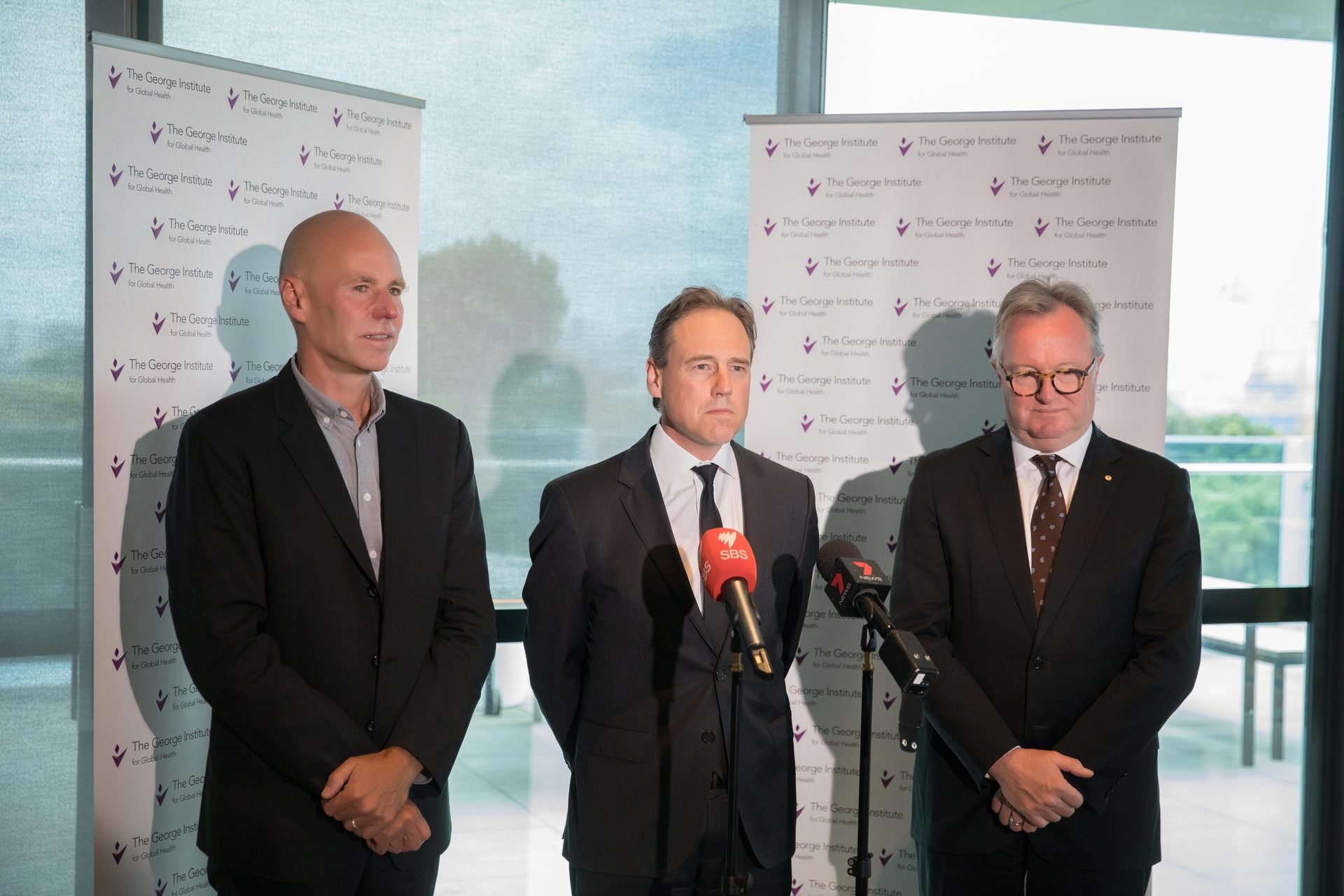
Record $24 million for research into Australia's biggest killers
The George Institute for Global Health today received a landmark investment of $24 million from the Australian Government to undertake research to prevent and treat cardiometabolic diseases, which affect seven million Australians and hundreds of millions globally.
With cardiometabolic diseases (cardiovascular disease (CVD), diabetes, kidney disease and stroke) responsible for more than a third of all deaths in Australia, research investment is critical.
The funding, through the National Health and Medical Research Council, is the third largest grant ever provided for medical research in Australia, and the largest program grant of all time and was announced by The Hon Greg Hunt MP, Minister for Health, who said: “I am delighted to announce a $24 million research grant for the George Institute – one of the world’s greatest research institutions.
“It is a tribute to the work of The George and it’s a recognition of the importance of cardiovascular disease and the impact that it has. Lives can be improved as we have seen through this research and indeed lives will be improved. I am delighted this is the largest ever cardiovascular grant in Australian history.”
Professor Stephen MacMahon, Principal Director and Co-Founder of The George Institute for Global Health, said the funding announcement recognises the global impact of the research conducted by this group of accomplished researchers.
“The new funding will enable them to expand their high-impact work on the prevention and treatment of cardiovascular diseases, kidney disease and diabetes, which remain the leading causes of early death in this country and many others,” said Professor MacMahon, who is a Professor of Cardiovascular Medicine at UNSW Sydney.
“We are very pleased to receive this award, and I am personally very proud of the team that has made this happen”.
The George Institute’s program, working with global team of researchers, will generate and translate evidence from high-quality research including:
- Better methods of managing stroke, including large scale clinical trials investigating the effects of blood pressure lowering in the prevention of stroke, and for improving outcomes in acute stroke patients, as well as new approaches to stroke rehabilitation.
- Trials of new combination pills for blood pressure management, aiming to make treatment simpler and more effective for patients.
- Whether specific blood sugar lowering medicines can prevent kidney damage and kidney failure in people with diabetes.
- Investigating if modifying dialysis treatment, such as timing and dialysis fluid composition, can improve outcomes for people with kidney failure.
- A new digital and interactive tool for GPs and their patients (HealthTracker) that is about to be trialed in 70 clinics across Australia.
- A specific focus on improving the prevention and management of cardiovascular disease in women.
The funding is designed to inform the decisions of health care providers and policy makers about best strategies for the prevention and treatment of cardiometabolic conditions.
It will focus on delivering clinical research to target new interventions as well as ensuring that practical and affordable mechanisms are translated into practice, not just in Australia, but worldwide.
Professor Bruce Neal, Deputy Director of The George Institute, Australia and lead investigator for the project, said: “This announcement is particularly important because it allows us to search for solutions throughout a patient’s life and across every point of their healthcare journey”.
“Good health is about having excellent treatments, facilities and staff, but also a great health system to coordinate them.
‘’Prevention is a big part of our work. We want to make sure people are treated better in our hospitals but also to figure out how to keep them out of there in the first place.”
The various research streams will be run by Professor Anushka Patel, Professor Craig Anderson, Professor Mark Woodward, Professor Anthony Rodgers, Professor Vlado Perkovic, Professor John Chalmers, Professor Clara Chow, Professor Richard Lindley and Professor Stephen Jan and will feature collaborations with both UNSW Sydney and The University of Sydney.

